Looking for a safer and more affordable way to clean your home? Check out these best natural cleaners that you can easily make using simple ingredients. In this blog post, we will share some of our best DIY green cleaning recipes. These cleansers are safe for your family and pets and work great on all types of surfaces. So why not give them a try?
When it comes to our homes, we like them to be clean, right? After all, for most of us home is where we spend the majority of our time.
But to keep our homes fresh we need to buy many different types of cleaning products. There's the bathroom cleaner, countertop cleaner, and products to remove grease and oils. There are also products to get rid of bugs like bed bugs, cockroaches, flies, mosquitoes, etc.,
But have you ever considered what is actually in these products? Or the impact they have on you and your family's health? Not to mention all the plastic it comes housed in!
The best natural cleaners and alternative bleach products are safe to use around babies, pets, and sensitive humans because they are not filled with toxic ingredients. The best part? They're simple to make, inexpensive and they work!
Here are the best natural cleaners you can make at home!
Let's begin with a shortlist of symptoms chemical cleaning products can cause :
- Wheezing
- Sniffing
- Asthma
- Colds & Flu-like symptoms
- Aching joints
Using Toxic Cleaning Products is Like Smoking
For over 20 years scientists from the University of Bergen, Norway studied the impact of cleaning products on human health. They reported back that when we use chemical-containing cleaning products in our homes, we might just as well be smoking 20 cigarettes a day!
Another study done by the European Community Respiratory Health looked at the impact on people’s lungs from using cleaning products.
This study selected candidates from over 22 locations in the world. They questioned them about how often they used cleaning products – then they tested and measured the functioning of their lungs. Here's what they found. Women who used toxic cleaning products showed a more rapid health decline than women who did no cleaning.
The researchers suggested that in a matter of 10-20 years, it was equal to those women who smoked a pack of cigarettes a day over that same period. Further findings also reveal the link between cleaning products, asthma, and respiratory problems.
The Typical Average Household Uses 60 Toxic Chemicals

The manufacturers argue that because there are such small amounts of toxins in their products, it does not present a health problem.
But this is not the case!
When you expose yourself to chemical cleaners daily, it is playing a risky game. This is especially true when in combination forms not even studied yet.
Some of these products contain chemicals that almost immediately produce headaches, skin-burning, and watering eyes. Sometimes, inhaling them, some can almost take your breath away!
When exposing yourself to certain chemicals occasionally you might not cause yourself harm. But chemicals can build up in your body, causing harm over time, and which can trigger other diseases.
Get this concept – the pollutions that are in both air and water that you want to escape from, is already in you. None of us can avoid exposure to all nasty toxic chemicals, but we can start to reduce them in our homes.
But before I show you some natural solutions to these chemical products, you need to know which ones are the worst offenders.
10 Worst Toxic Chemicals in Cleaning Products
1. Phthalates
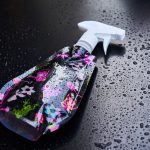
You will find this chemical in aroma products like soaps, air fresheners, sometimes even the scented toilet paper.
Because of proprietary rules, some companies don’t even need to disclose the fact that their products contain phthalates.
Look at the label. If you notice “fragrance” appearing on the bottle – that’s probably got phthalates in it. Some men even have lowered sperm counts due to phthalates. this from a study dated 2003, because of this toxin, Phthalates.
2. Perchloroethylene (“PERC”)
3. Triclosan
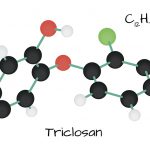
You can find triclosan in soaps – soaps that get your hands cleansed – which might even say ‘antibacterial’ on them. Your dishwashing liquids contain this as well. Triclosan is actually a very aggressive agent to fight bacteria but it comes at a cost.
Triclosan is linked to a weakening of your immune system and abnormal endocrine system/thyroid hormone signaling. Children exposed to antibacterial products have an increased chance of developing allergies, asthma, and eczema.
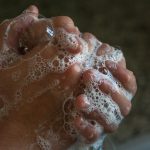
4. 2-Butoxyethanol
You will find 2-Butoxyethanol in your multi-purpose and window cleaning products. It forms part of the powerful solvents. Again, laws don’t require this chemical to be listed on labeling. But yet it contributes towards sore throats, narcosis, severe kidney and liver problems or pulmonary edema.
5. Quaternary Ammonium Compounds (“QUATS”)
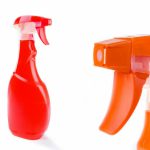
Softening liquids that smell of fresh apples or tiny powdered babies contain this dangerous chemical. You will find these also in products marked “antibacterial.”
QUATS can irritate the skin and cause asthma and respiratory conditions.
6. Ammonia
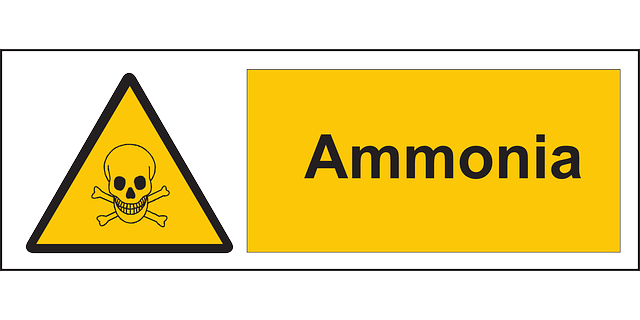
Ammonia is in cleaning agents for sinks, in the bathroom and fixtures. It gets used for cleaning jewelry and glass. Ammonia helps to clean windows and glass making. But underneath that sparkle is strong ingredient which causes irritation. This is especially if you suffer from asthma and lung problems.
7. 2-Butoxyethanol
You will find 2-Butoxyethanol in your multi-purpose and window cleaning products. It forms part of the powerful solvents. Again, laws don’t require this chemical to be listed on labeling. But yet it contributes towards sore throats, narcosis, severe kidney and liver problems or pulmonary edema.
8. Chlorine
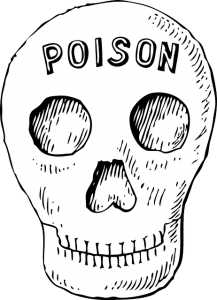
Chlorine is in products that clean swimming pools and toilet bowls, etc. It makes the laundry white, and it can remove mildew. It’s even added to the city water systems to keep the water clear from bacteria. This means when you bathe or shower, there is probably chlorine in the water; Chlorine can put you and your family at a risk of developing allergies or asthma and even cause problems to your thyroid.
9. Sodium Hydroxide
Found in drain and oven cleaners, Sodium Hydroxide is also known as lye. It is very corrosive and if you get some of this on your hands or worse, your eyes, you can be seriously burned. If you inhale it, it is so toxic that your throat can be sore for days on end.
10. Lysol
Lysol is like a deodorizing spray – it does a good job of cleaning and deodorizing the air. It doesn’t diminish odors, it just masks them.
Have you ever noticed how sticky Lysol is? When you inhale, it coats the hairs in your nose, so all you can smell is Lysol.
These sticky participles also get inhaled into your lungs, which produce mucus to try and rid itself of the Lysol. All the excess mucous causes coughing and wheezing. And if you have an asthmatic reaction, you could find yourself in some emergency room at your nearest hospital.
Don’t use it! People buy it for in their bathrooms, and yet is it classified by the FDA as a pesticide!
What is the Most Effective Natural Disinfectant?
The best natural disinfectants include alcohol, hydrogen peroxide, vinegar, hot water, and some essential oils.
Do Natural Cleaners Work?
Evidence suggests that in some cases, many of these natural disinfectants can be as effective at killing germs as chemical cleaners like bleach.
What Does Green, Natural and Biodegradable Mean?
Pleasant-sounding words like ‘green’, ‘natural’ and ‘biodegradable’ doesn’t mean the product is non-toxic.
In 2010, a company by the name of TerraChoice Group submitted a report, titled ‘The Sins of Greenwashing. It reported that more than ninety-five percent of products are guilty of greenwashing.
Unfortunately, there are many companies who claim their products are environmentally friendly and safe to use when they are not. When a company deliberately misleads customers about the real impact of its products, it's called Green-washing!
Fortunately, you can detox your home with natural DIY cleaners that are safe, cheap, and which do a splendid job.
Here are some fantastic remedies that will work in your home, and keep you healthier and probably living longer.
Get this book too, for fantastic recipes if you are serious about keeping your home clean and you yourself healthy and happy.
Best Natural DIY Cleaners You Can Make At Home – With Recipes
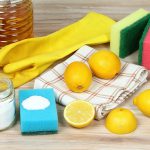
Here are the best natural cleaners you can make at home.
1. Natural All-Purpose Spray
Your most-used cleaner will likely be an all-purpose spray. It's safe, inexpensive, and effective. What more could you want, right? An organic all-purpose cleaner is intended for both bathroom and kitchen counters.
You'll need:
- 1 tablespoon of baking soda
- 1 teaspoon of Castile soap
- 5 drops of lemon essential oil
- Water
Add baking soda, castile soap and lemon essential oil to a spray bottle. Fill the rest of the bottle with water. Shake to combine.
2. Natural-Non-Toxic Sink Cleanser
Mix up half-cup bicarbonate of soda with 6-drops either lavender, lemon, rosemary, orange, or lime essential oil.
Rinse the sink out, using hot water, then add the above mixture to the sink.
Pour quarter-cup vinegar over, allowing the mixture to fizz. When the fizz has settled, scrub the sink with a cloth or a sponge, rinsing once again, using hot water.
Rather than toxic fumes, your kitchen will smell fresh and natural! This is my favorite natural cleaner! It works way better than Comet!
3. Natural Hardwood Floor Cleaner
Castile soap, white vinegar, and lemon essential oil in a spray bottle make a fresh-smelling powerful cleaner.
Add 3 tablespoons of Castile soap and 15 drops of lemon essential oil to 1 gallon of water. Next, add up to 1/8 of a cup of vinegar and stir to mix.
I like to mix and pour ingredients into a squirt bottle so it's ready when I need it to mop up spills.
4. Safe, Non-Irritating Oven Cleaner
5. Get Rid of Bathroom Mildew With Essential Oils
6. Natural Shampoo For Carpets
Other Alternatives To Keep Your Home Spick and Span Naturally
7. Laundry Soap
Soap nuts are a good idea, and it’s made using the dried fruits from the Soapberry Tree. Sometimes you can buy soap that is reusable, from online shops. It comes in a sack made out of cotton, which you can throw into your washing machine along with your clothes.
You can also make laundry soap with Castile soap.
You'll need 1 bar of Castile soap, 1 cup of washing soda, and 1 cup of Borax.
Grate the Castile soap and then add it to your blender with 1 cup of the washing soda.
Blend until the pieces are finely ground, so the soap dissolves easily and you get a good mix of all the ingredients in each scoop.
Dusting
Forego that nice smelling furniture spray or polish. Rather opt for using a cloth consisting of microfibers. A microfiber cloth captures more dust than a regular cloth does. If you feel like a bit of gloss to your furniture, you could even apply a bit of olive oil.
Air Purifier
Excellent at removing tiny pollutants like dust, pollen, tobacco smoke, and toxic off-gassing, a high-quality air purifier goes a long way to purify your home air naturally. Good activated carbon filters absorb volatile organic compounds and chemical particles from the air. Look for air purifiers that have both the activated carbon filter as well as the HEPA filer.
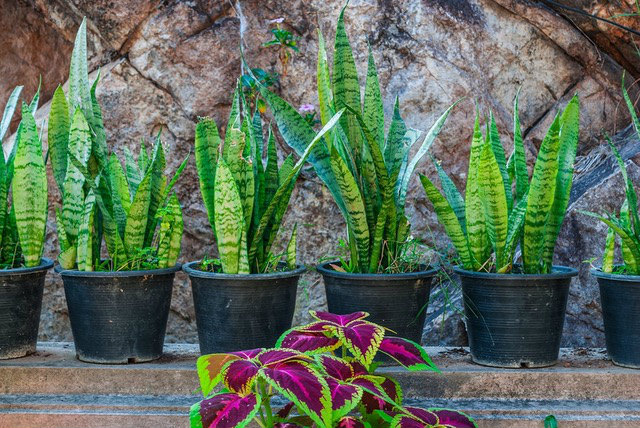
Buy Plants For Your Home
Plants are good at cleaning toxins from the air. The best houseplants for cleaning indoor are Aloe Vera, Ficus, Boxton Fern, Dracaena, and Snake plant.
Chemical cleaners are made to look and smell good
Manufacturers of chemical products churn out products that have tantalizing fragrances. There are rose smells, vanilla smells, lavender smells, potpourri and so much more.
But these are definitely not natural aromas – they are chemicals that you breathe in!
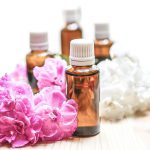
Essential Oils
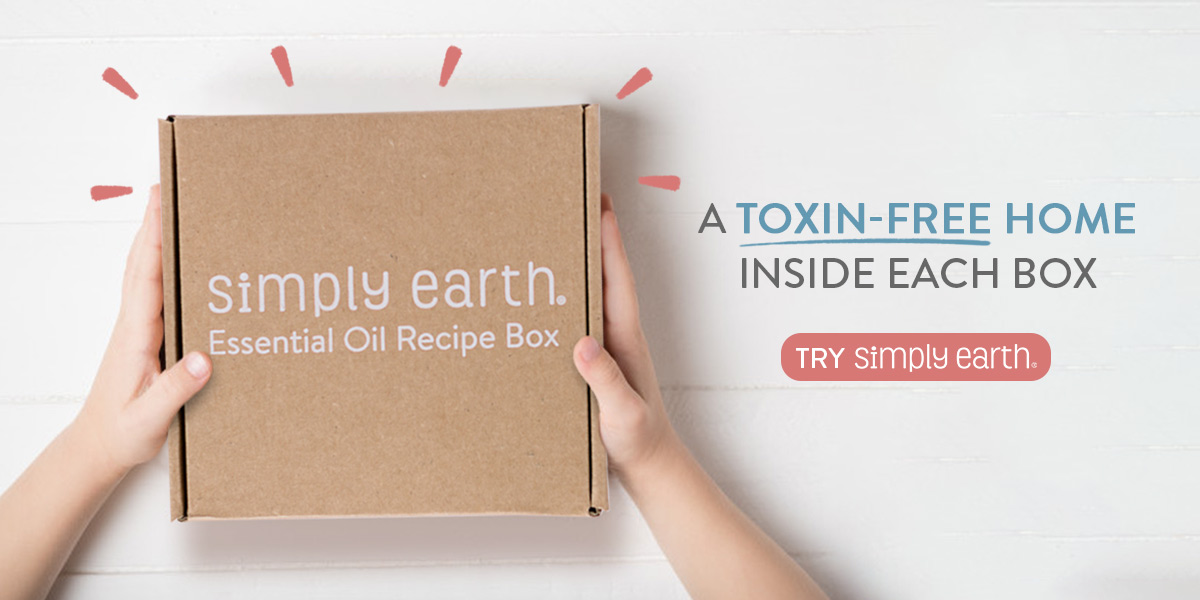
If you like aromas in your home, It's better to smell essential oils which you can diffuse into the air. This will save saving your brain cells from getting damaged!
Essential oils have fantastic, natural scents! You can add a couple of drops of essential oils to your homemade cleaners. Always ensure that the products you buy and use are natural and not chemically-derived scents.
You need to realize the harmful effects that chemical cleaners have on your health. Don't forget that your kids and pets play and live on the same floors that you just used toxic chemicals on.
You can clean just about anything from this list of products:
- Vinegar
- Water
- Borax
- Lemon juice
- Baking soda
- Natural soaps (hemp or Castile)
- Hydrogen peroxide
So, start stocking your home with these products. If you don’t like that sour vinegary smell, then you can always add in drops of essential oils such as lavender.
Essential oils provide aromatherapy benefits too. Lavender essential oils have a soothing, calming effect on the brain. Or take lemon or orange essential oil which is uplifting to your mind, fresh and clean.
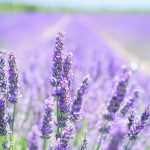
How to Replace Toxic Cleaners With Essential Oils
Essential oils help you in replacing harmful toxic cleaners from your home. And best of all, you don’t have to spend a lot of money.
Bathrooms
People might think that essential oils will never be suitable for cleaning the bathroom. After all, how do you cut through all those germs and dirt, right?
But no. Essential oils like eucalyptus, tea tree, and oregano even work against viruses in the body such as influenza, norovirus, and horrible Staphylococcus aureus.
And do you know about the wonders of baking soda and vinegar to scour your bath and absorb grease? All you need to do further is to add a favorite essential oil mentioned above to enhance the cleaning experience.
Lemon, lime, and orange are natural degreasing agents, plus they all have antimicrobial properties. It might be hard to get excited to clean a bathroom, but you have a much better experience cleaning with essential oils than toxic chemicals because the essential oils will actually uplift you as opposed to killing brain cells.
Bedrooms
Bedrooms contain dust and plenty of airborne microbes that can cause linens etc. to take on a musty smell. But you can freshen up the bedroom with essential oils by making mattress sprays.
All you have to do is add a few drops of eucalyptus, rosemary, or lavender to a spray bottle that has water added and you spray liberally onto the mattress.
Kitchen
Look here for an excellent kitchen cleaner using hydrogen peroxide – remember you can add essential oils too. Black pepper essential oil goes well with this cleaner. Research also shows how effective black pepper essential oil is against many bacteria.
Floors
Whether it is carpets or hardwood floors, essential oils are excellent for effectively cleaning floors. For tiles and hardwood floors, the lemon essential oils added to your natural cleaner goes a long way in dissolving marks and dirt.
Furniture
When it comes to furniture, you may be picky about what you use, particularly if you have antiques for example. This type of wood and furniture requires regular but gentle cleaning. Natural cleaners with a natural essential oil such as lemon, cedarwood, and sweet orange are excellent for this purpose. Plus you'll love the gentle and soothing aromas.
Kid and Pet Toys
You can’t be more cautious when it comes to pets and kids. And lavender essential oil does wonders for cleaning and working against nasty bacteria and viruses. Homemade deodorizer sprays made with essential oils will come to the rescue when you are looking for an excellent sanitizer and deodorizer for sports equipment.
Conclusion
Today, there are over 80,000 toxic chemicals used in cleaning products that are detrimental to your health. Fortunately, there are wonderful products from the natural world that you can make use of to make your own cleaning products.
I made the switch to all-natural products in 2016 after developing a contact rash on my hands from a chemical in the products I was using. You too will discover how easy, really fun, and inexpensive it can be to make your own cleaners. A great thing about homemade cleaners is that most of them are made, using the same basic ingredients – so easy.
You will really want to get into this big time when you realize, that according to the Environmental Protection Agency, (US), the air inside your home can actually be 2-5 times more polluted than being outside. This comes from cleaning and decorating your home. Some people open windows, but this does not get rid of all the negative effects that harmful chemical ingredients can cause.
It cannot be soon enough to make a clean sweep today, starting with natural products – so pick up your copy of Everyday Roots today and dive into DIY household tutorials, home remedies, and natural beauty recipes. Your body will thank you.
Learn How to Replace the toxic products in your home with over 215 Natural Remedies, Beauty Recipes and DIY Household Products

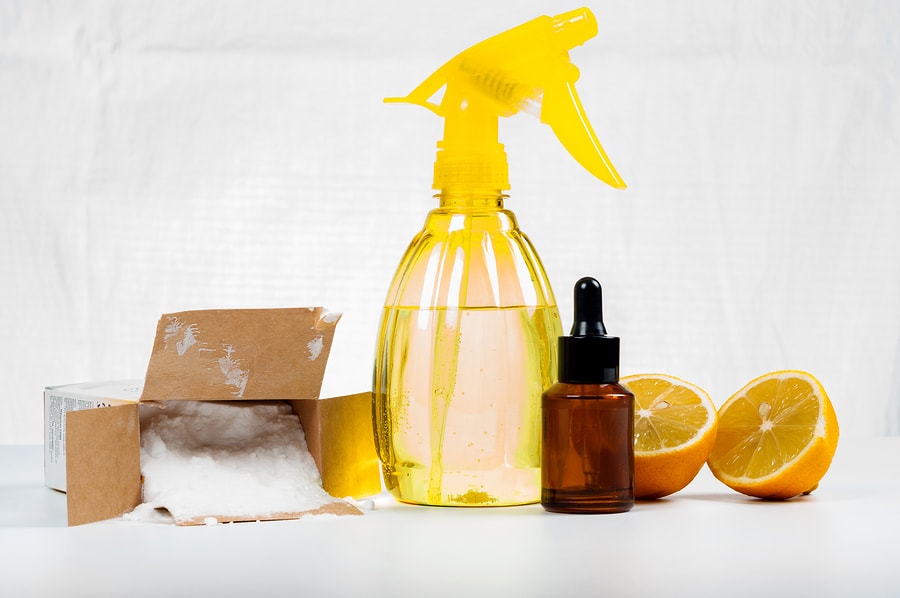



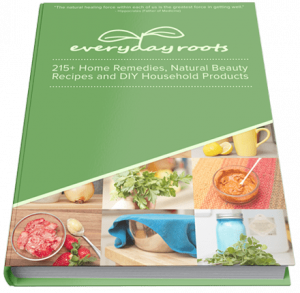
I understand what you are saying about the cleaning products taking your breath away. Sometimes when cleaning the shower, since it an enclosed design, you almost need to hold your breath as it feels like the cleaners literally are burning your lungs. And it remains thag way for hours after.
Vaughn, make sure you open windows if you’re still using chemical cleaning products because as the article points out, they are toxic to take into your body! Try using some of my recipes for cleaning products for a healthier cleaning experience! 🙂 Take care
Thank you for this great review on natural cleaners that you can make at home. I had not heard the example that using toxic cleaners is like smoking 20 cigarettes a day before. It sounds great doesn’t it? I bet it’s pretty accurate as well. Thanks for the great tips about a stainless steel sink cleaner. I think I will give that a go. I was just wondering what your #1 tip is for walk in robes? I have using moth balls but I still want to protect my clothes.
Hi Gleny’s ! Great question! Try using cedar blocks and/or cedar chip balls (put the chips in small containers and set them throughout your closet) to replace moth balls.